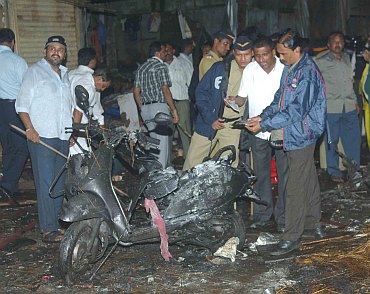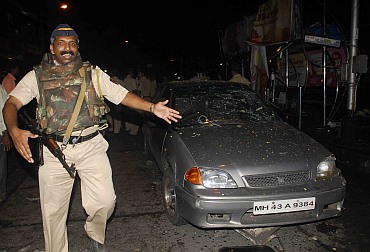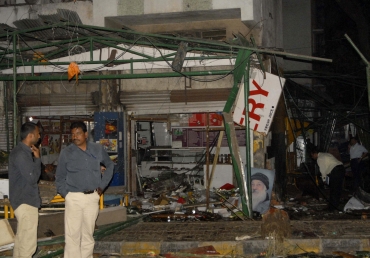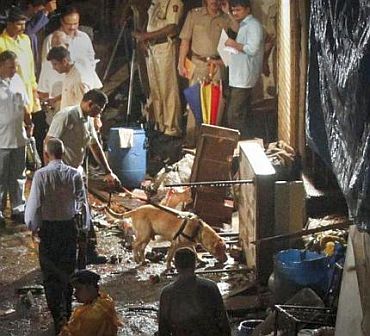
Investigators claim that the all possible angles are being looked into. Toral Varia takes a look at the task cut out for them.
From forensics to human and scientific intelligence, the Mumbai Anti-Terrorist Squad has got its task cut out in days to come to ensure that the perpetrators of the serial blasts are nabbed before it's too late.
As Rakesh Maria, chief of the Maharashtra ATS, puts it, "Right now, detecting the case is our number one priority and we are exploring all possible angles."
A dozen teams comprising highly skilled investigators of the Mumbai crime branch and the ATS have been formed. Each team has been given a specific task. Each team will operate independently and report directly to the ATS chief.
Information will be shared with the teams strictly on a need-to-know basis.

One team is already neck deep into scanning hours and hours of footage obtained by the investigators from multiple CCTV cameras fitted at the three blast sites. While it may be a long drawn out process, there is a good chance that the investigators may or may not get a strong lead.
A preliminary forensic report has confirmed the presence of ammonium nitrate, traces of TNT and use of a timer device. According to Maria, forensic experts have sought more time to decipher the make and exact composition of the explosives used in the blast.
Maria added that they have exchanged critical forensic information with the Central Forensic Science Laboratory personnel.
Forensic analysis will help the investigating sleuths to find out the exact intensity of the explosive, the complementing components used in the blast along with ammonium nitrate and TNT, how was the bomb placed and at what angle, the exact timer device used, and to determine whether it was a mobile alarm timer device or a regular clock timer device.
Conclusive forensic reports will then be compared to the forensic records of the previous blasts. A comparatively analysis will give a clear idea about the corresponding group and the modus operandi.

One team has been deputed to record scores of statements of hundreds of eye-witnesses, in an attempt to establish the chain of events leading up to the blasts. Based on select eye-witness statements, the cops will have to start constructing sketches.
This process again may or may not yield concrete results.
One team will be deputed to do the required paperwork. A core team has already been given the job of tracking the network of informers and get more leads on possible movements of fundamentalists or radicals under watch, and details on suspects, other informers and families of the suspects etc.
This exercise is likely to take the police teams to multiple locations within the state and across the country. One team has been given a task of interrogating the jailed accused of various blast cases.
Top brass of the department will be coordinating with the central and other state agencies. Meanwhile, the exchange of calls is also being scanned and monitored by another team.

While cops insist that all possible angles are being looked into, startling similarities between the previous blasts executed by the Indian Mujahideen and the latest serial blasts are leading investigators to concentrate more on the possible involvement of the IM.
Investigators suspect that the possibility of involvement of the group which executed Pune's German Bakery blast in February 2010 is the highest. Cops have intensified the search for alleged IM operatives such as Mohsin Choudhary, Fayaz Kagzi and Zaibuddin Ansari.
The home ministry has confirmed that wires were found entwined with the body of a deceased in the Mumbai blasts. While chances are that the victim may have been very close to the explosive, investigators are also exploring the 'human bomb' angle.

ATS officials are also trying to ascertain if the blasts could be the handiwork of Naxals or right-wing extremists.The ATS is now also looking into an input which came via the National Investigating Agency pertaining to the suspicious movement of 20-25 young men out of Hyderabad.
This information was originally passed on to them by Hyderabad's elite intelligence-cum-combat agency, the Organisation For Counter Terrorist Operations or Octopus.
A source claimed that the ATS lost track of these men because they were not using mobile phones.